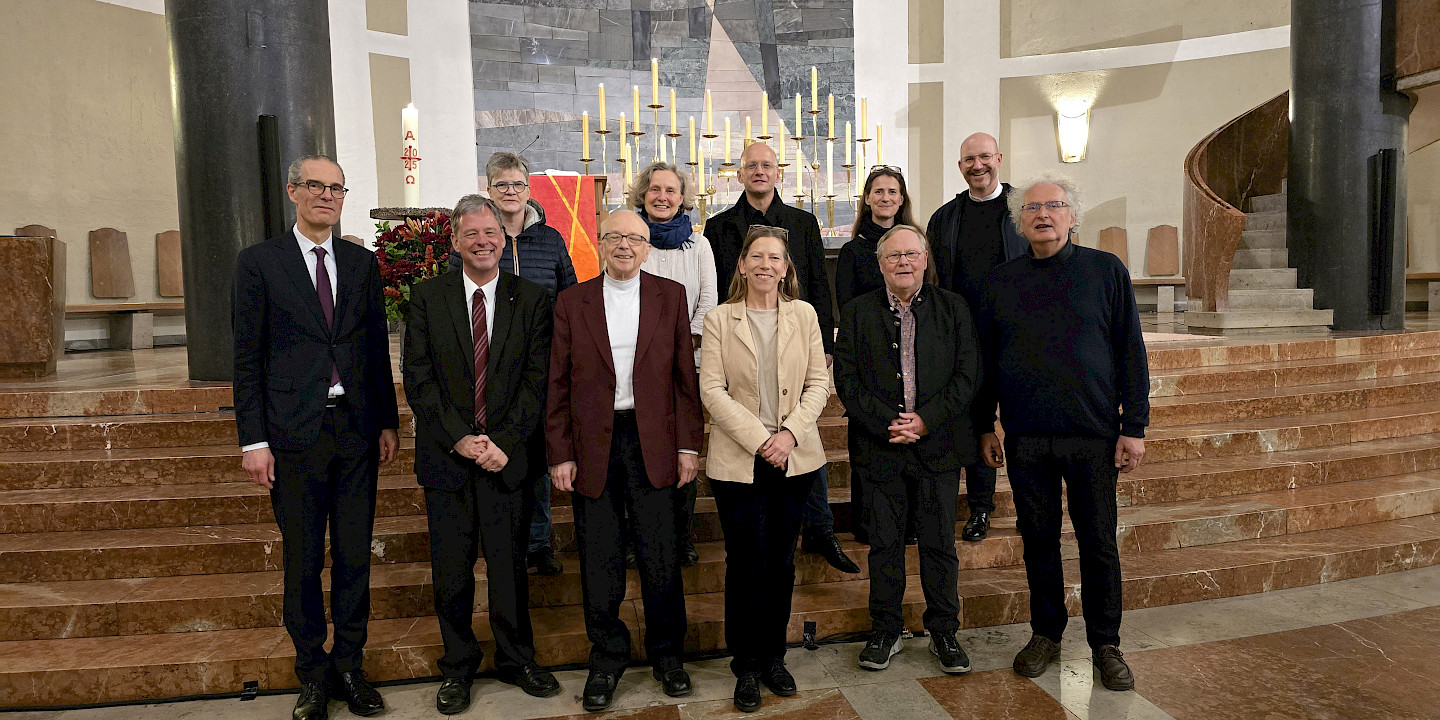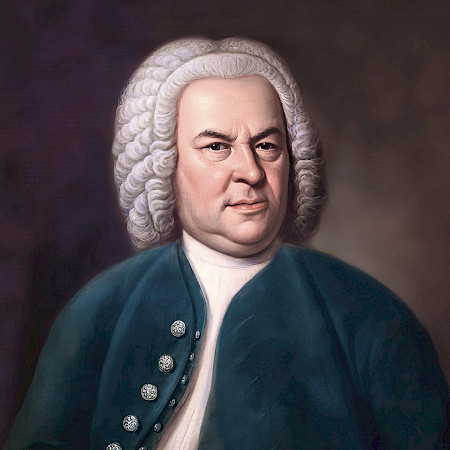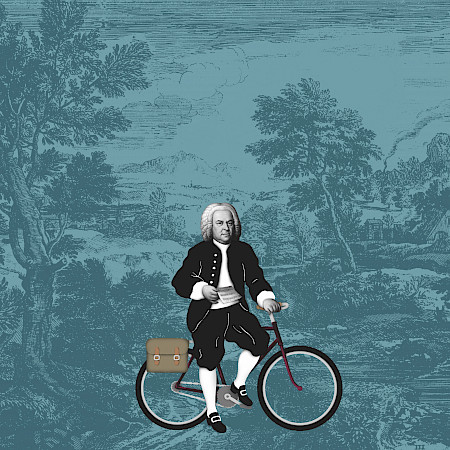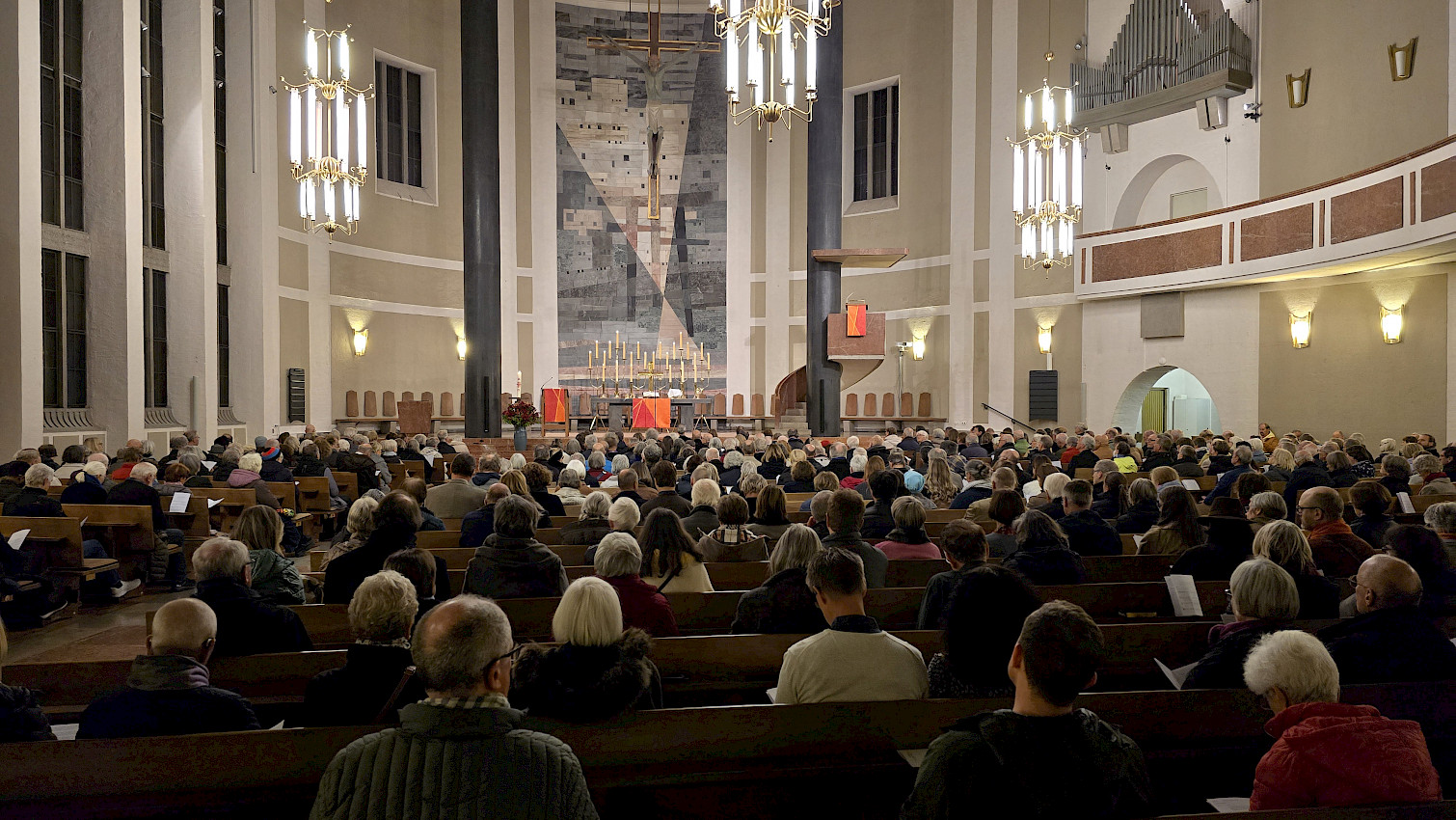
"The notes bring the text to life"
04.11.2025,
Luther and Bach, Reformation and music. They belong inseparably together. "The notes bring the text to life" wrote Luther. Without music, man is like a stone, according to Luther. And he was right. For how sad and how bad it is when people become stones. When nothing touches them anymore, nothing moves them anymore, nothing softens them anymore, nothing makes them happy anymore, nothing moves them to tears anymore. There are so many of them, and it is high time that God spoke to them through music, touched their hearts emotionally and made them human again, true human beings. Music can do that. Make us human. Our world needs more music.
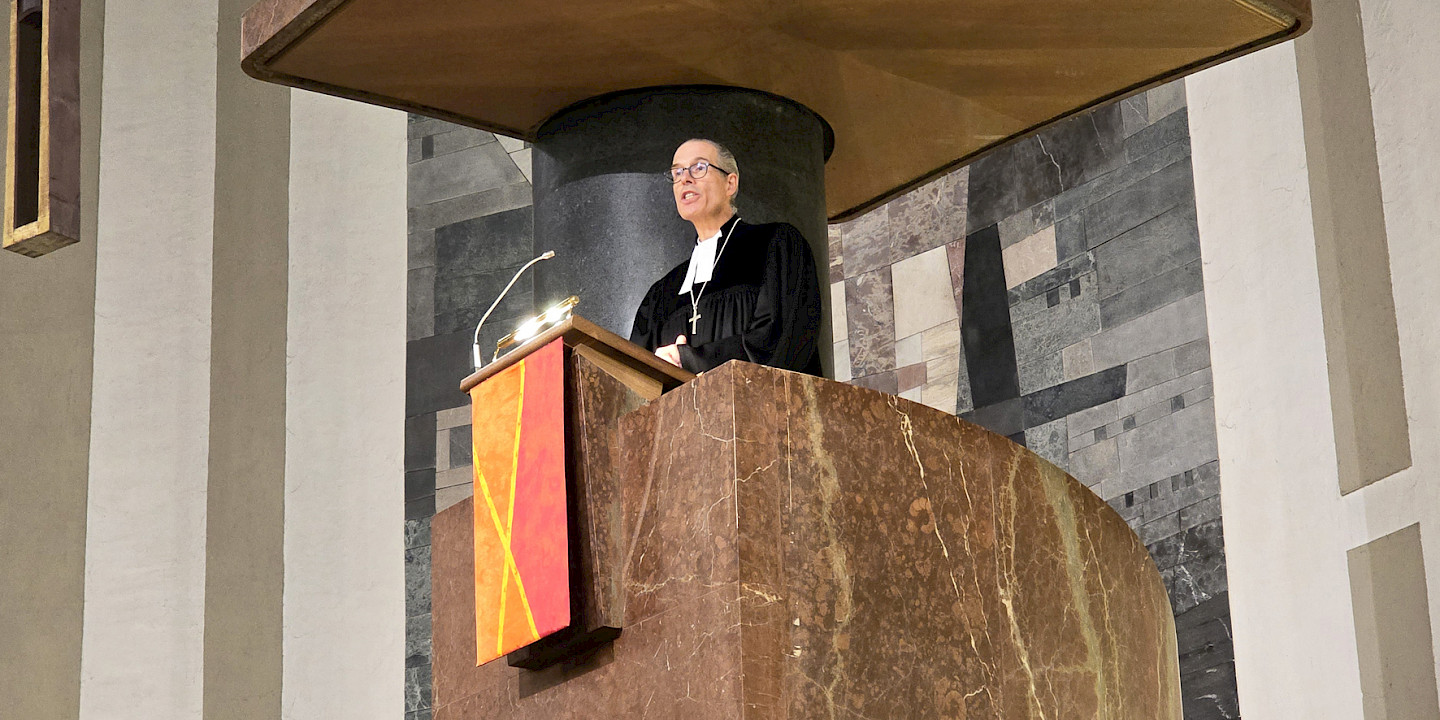
How wonderful and fitting, then, that we are opening the Bach Festival with a service on the Feast of the Reformation. Bach composed the cantata "God the Lord is Sun and Shield" especially for the Reformation Festival in 1725, and he composed it as a cantata of praise and thanksgiving, which at first glance doesn't give away the occasion of the Reformation Festival. You have to be a die-hard Lutheran to hear Luther's hammer blows at Wittenberg Castle Church in the drumbeats of the opulent opening movement.
This cantata is festively cheerful. There is no Protestant hero worship in it, it has nothing defiantly doggedly ideological about it. Instead, it radiates joy, freedom, liveliness and lightness, a broad horizon - just as the Reformation festival should do, and just as we should do as Christians. We need these gifts.
Admittedly, there are still a few small hidden denominational points, such as the barking blasphemous dog and the plea for those who "must pull on another's yoke out of blindness". Our Catholic brothers and sisters may graciously overlook this. For although we are celebrating this festival today to reaffirm ourselves, we are not doing so in order to set ourselves apart, to make a denominational fuss, but so that we can seek out enriching encounters with our brothers and sisters in faith all the more cheerfully. Music broadens our horizons in every respect.
And music was already building bridges at the time of the Reformation. Even Martin Luther, otherwise not at a loss for confessional polemics, wrote full of respect to the Catholic Munich court composer Ludwig Senfl and ordered compositions from him. "Give my respectful greetings to your entire musical choir," Luther wrote from Protestant Wittenberg, the stronghold of the Reformation, to Catholic Munich, the stronghold of the Counter-Reformation. I imagine this figuratively, Ludwig Senfl here in Munich in front of his Catholic ensemble: "Martin Luther sends you his warmest regards." Where speechlessness prevails and relationships are barely possible, music can build bridges.
"The Lord God is sun and shield", Bach reminds us with the quote from Psalm 84. Let's take a look at the time. The French King Louis XIV, the absolutist Sun King, had been dead for just 10 years in 1725, and he had left behind a bankrupt state and had waged war for 50 years. In contrast, it says here: "The LordGod is sun and shield" – reminiscent of the Bible and Bach's setting, thus questioning - as is currently the case – the claims to absoluteness of earthly authoritarian rulers and their fantasies of war. Authoritarian and populist thought structures are no solution. But the sentence "The Lord God is sun and shield" remains abstract and theoretical if it does not become our sentence.
And that's why the old aria specifies: "God is our sun and shield." How nice if we could say or sing that. And it reflects an experience that it can be dark in the world and in our lives or within us. Because we have lost our confidence, and it can be lost so quickly – especially now. [...]
How easy it is to give up confidence. And that is also why we are here today: Because it is our task as Christians not to gloss over anything, not to talk anything away or to sugarcoat it with sweet faith sauce, but our task is to remain confident, despite everything. In a world in which real blasphemers are brutalising language and sowing hatred, in which the enemies of a pluralistic, democratic, cosmopolitan, colourful and diverse society are blithely "whittling their arrows", as our Bach cantata puts it, it is our task to facilitate respectful communication, civil language and a high standard of interaction with one another in a Christian spirit. Music can make us immune to hatred. [...]
Music and Bach make us great, but in such a way that we do not lose our humanity. So that we can remain cheerful, confident and calm in our limitations, with all the boundaries that we so often experience. Music can do that.
And still be able to praise and thank God. The chorale "Nun danket alle Gott" is set by Bach in such a way and harmonised so simply, even with an interlude to take a deep breath, so to speak, that it actually invites the whole congregation to sing along. [...]
Music not only opens our ears, but also our eyes to what is good and beautiful and what a gift our lives are. We could sing, cheer and dance sometimes, but we do it far too rarely. In his wonderful biography of Bach, conductor John Eliot Gardiner writes: "It is Bach making music in the heavenly castle that makes the voice of God audible to us – in human form." That is what music can do, and that is what the music of Johann Sebastian Bach can do: make the voice of God audible.
And when the voice of God reaches us, we do not remain untouchable stones, then we become alive, even if our body may feel old, then we can retain confidence, even if so much seems to speak against it, then we can perceive our life, as confused as it may sometimes be, as a gift, then we can endure our own imperfection and that of others cheerfully and perhaps with humour, then God can make a harmony out of our sometimes weird and crooked tones, and then we can – despite everything – say and sing right now:
"God is present in my life too".
Amen.
